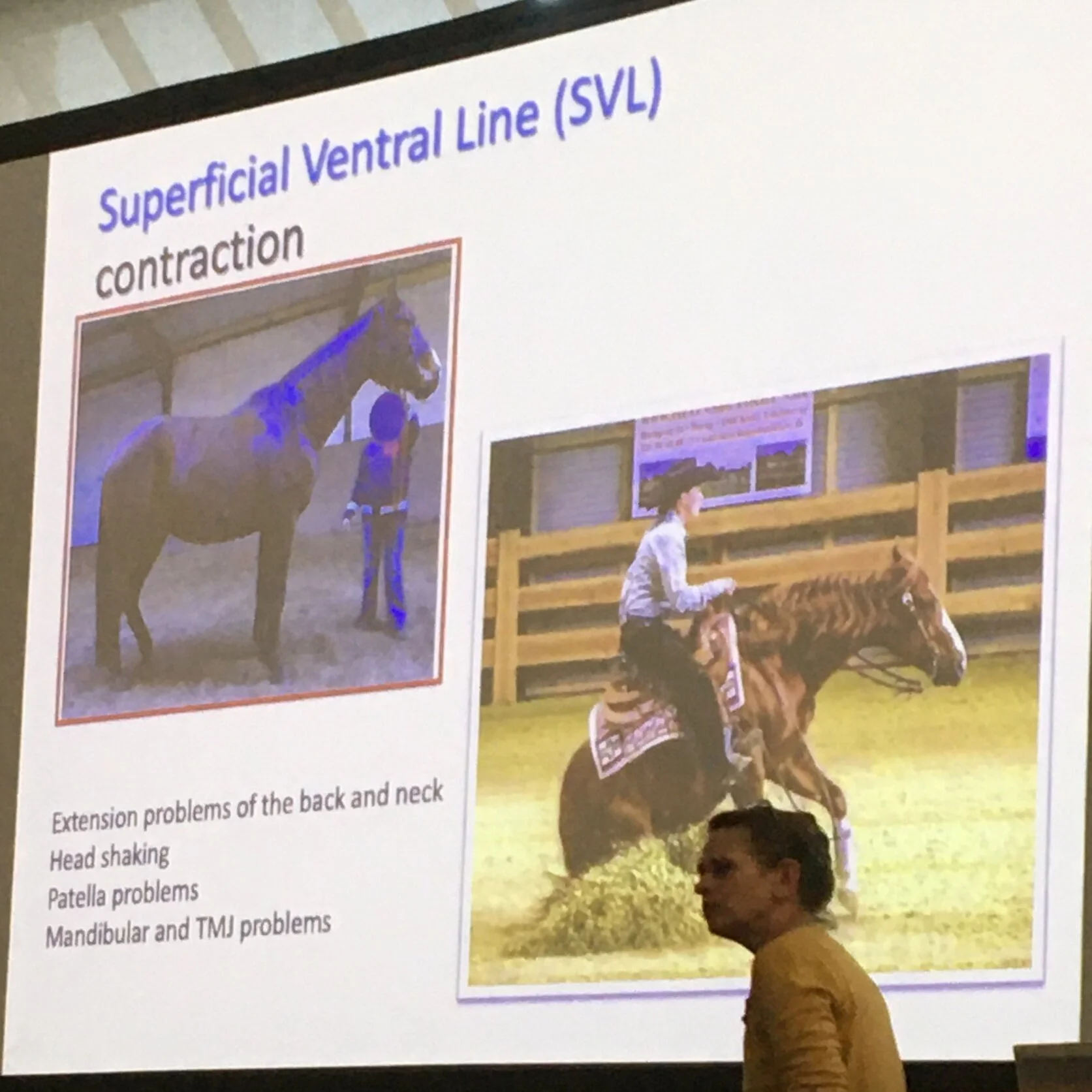Horses Inside Out Conference 2020 - Anatomy In Action - Part 9
Hello and welcome back to my blog about the Horses Inside Out Conference 2020 - Anatomy In Action.
Today I would like to share with you some more of the amazing research by Dr Vibeke Elbrond.
You can learn more about Vibeke in my previous blog.
Vibeke’s second presentation of the weekend delved deeper into the Myofascial Connections and some of the Myofascial lines.
This is a very exciting topic for me that I just can’t get enough of!
I am hoping to share with you in this blog some more of my notes to support the ones I shared previously and I hope these will be useful for you.
So, what are Myofascial Kinetic Lines?
Muscles and fascia arranged in continuous lines/rows - spanning from top to toe
Myofascial kinetic lines collaborate in motion and in standing
Myofascial kinetic lines balance the body in a 3-D network in motions and in posture
A single structure on the line will influence on the rest of the structures on the line
Some of the lines Vibeke shared with us were:
Superficial Dorsal Line - SDL
Superficial Ventral Line - SVL
Lateral Line - LL
Spiral Line - SPL
Functional Line - FL
Deep Ventral Line - DVL
Deep Dorsal Line - DDL
Here are a few of the slides I was able to capture during Vibeke’s presentation illustrating some of the lines and symptoms the horse displays if the lines are tight:
The equine myofascial kinetic lines are located externally as well as internally.
The deep myofascial lines e.g the DVL also connect to vital organs and structures of the body cavities and organs.
These connections run via the subserosal fascia layer and might give rise to a new approach and explanation for viscero-somatic pains and interactions e.g kidney and/or ovarian problems related to lumbar pain.
This I find absolutely fascinating and look forward to learning more about this as it certainly makes sense to me.
Another deep line, the DDL, includes, among other structures, the tiny intervertebral muscles of the spinocosto-transversal system and via a contact to the dorsal intervertebral membrane also an indirect connection to the meninges (dura mater).
This connection is referred to as the myodural bridge.
Up at the poll, the most cranial region and where the cranium and first and second cervical veterbrae meet, myodural bridges are believed to be involved in pumping and circulating cerebrospinal fluid (the liquid around your brain and spinal cord).
They are found to be present and isolated in numerous species.
In humans damage to this bridge commonly occurs with whiplash injuries, giving rise to numerous symptoms ranging from:
A lack of concentration
Sleep problems
Nausea
Headaches
We can only speculate about the symptoms that horses might exhibit as a result of situations of acute or chronic trauma to this region or indeed the effects of:
Extreme head and neck positions during riding
Use of the reins
An ill fitting bridle
Training aids
A pull back injury
Certainly food for thought! We can only imagine what our horses might be experiencing and what they are trying to communicate with us. Some suffering in silence,
The take home message from this presentation was:
Fascia is the basic 3-D skeleton presented in the full body
It integrates locomotor as well as visceral structures
Health of the fascia is essential for a healthy body!
I hope you have enjoyed this blog and my interpretations of Vibeke’s fabulous presentation.
Unfortunately due the current Coronovirius pandemic Vibeke’s course has been cancelled for this year but I hope to be able to attend in 2021.
Please keep any eye out for my next blog in this series coming soon where I will be sharing my notes from vet Sue Dyson’s second presentation of the weekend. ‘What’s new in Lameness Diadnosis’
Thanks again to Horses Inside Out for allowing me access to their professional photos.













